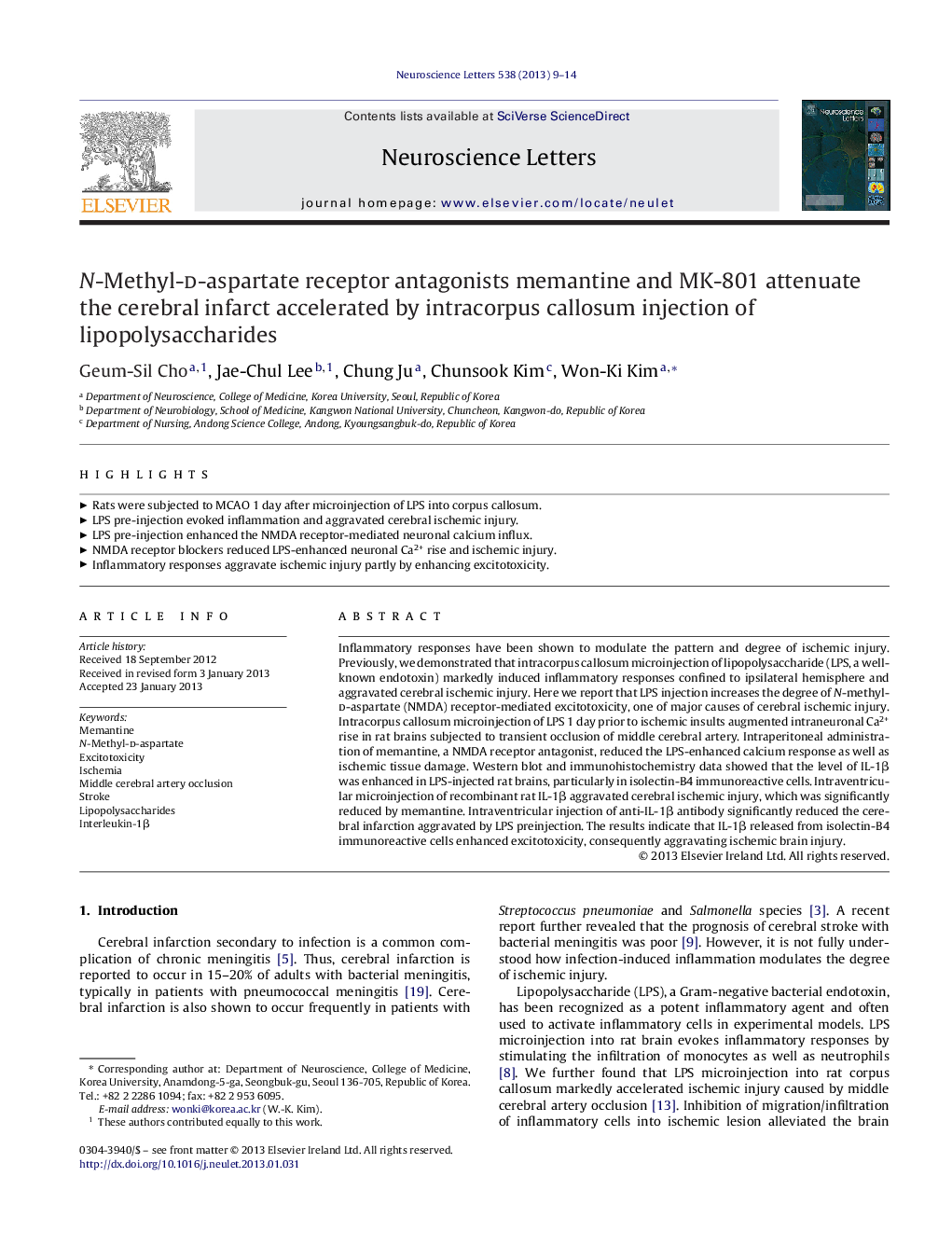| Article ID | Journal | Published Year | Pages | File Type |
|---|---|---|---|---|
| 4344082 | Neuroscience Letters | 2013 | 6 Pages |
Inflammatory responses have been shown to modulate the pattern and degree of ischemic injury. Previously, we demonstrated that intracorpus callosum microinjection of lipopolysaccharide (LPS, a well-known endotoxin) markedly induced inflammatory responses confined to ipsilateral hemisphere and aggravated cerebral ischemic injury. Here we report that LPS injection increases the degree of N-methyl-d-aspartate (NMDA) receptor-mediated excitotoxicity, one of major causes of cerebral ischemic injury. Intracorpus callosum microinjection of LPS 1 day prior to ischemic insults augmented intraneuronal Ca2+ rise in rat brains subjected to transient occlusion of middle cerebral artery. Intraperitoneal administration of memantine, a NMDA receptor antagonist, reduced the LPS-enhanced calcium response as well as ischemic tissue damage. Western blot and immunohistochemistry data showed that the level of IL-1β was enhanced in LPS-injected rat brains, particularly in isolectin-B4 immunoreactive cells. Intraventricular microinjection of recombinant rat IL-1β aggravated cerebral ischemic injury, which was significantly reduced by memantine. Intraventricular injection of anti-IL-1β antibody significantly reduced the cerebral infarction aggravated by LPS preinjection. The results indicate that IL-1β released from isolectin-B4 immunoreactive cells enhanced excitotoxicity, consequently aggravating ischemic brain injury.
► Rats were subjected to MCAO 1 day after microinjection of LPS into corpus callosum. ► LPS pre-injection evoked inflammation and aggravated cerebral ischemic injury. ► LPS pre-injection enhanced the NMDA receptor-mediated neuronal calcium influx. ► NMDA receptor blockers reduced LPS-enhanced neuronal Ca2+ rise and ischemic injury. ► Inflammatory responses aggravate ischemic injury partly by enhancing excitotoxicity.
